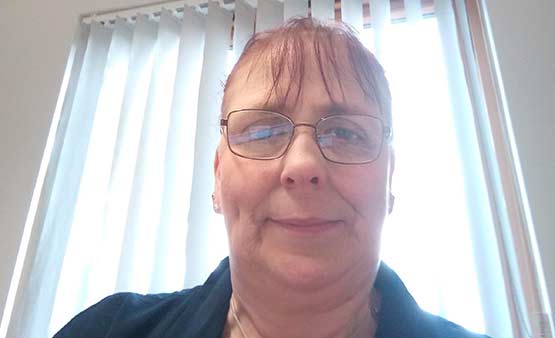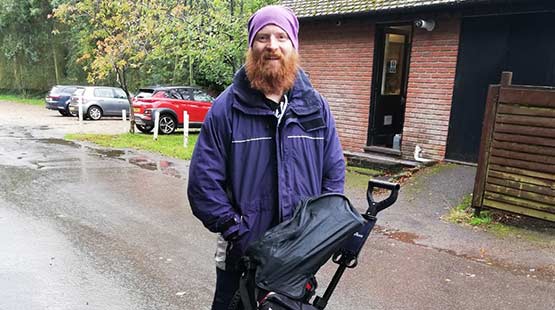
When you’re told you need a stoma, it’s natural to think how it’s going to change and affect your body. After all, it’s positioned on your abdomen, so that’s where your prime focus is. Sadly, this often means many people end up neglecting their mental wellbeing. A situation made worse by a lack of free mental health provision from primary care trusts.
In this blog, we’ll be taking a look at how you can look after your own mental wellbeing with helpful advice from our me+ advocates.
Our minds work on a subconscious level. It’s why we do things without even thinking of them. Sadly, this also means that mental health issues can build up over time, without us realising.
That’s why it’s a good idea to know the warning signs. So, you can take action before things go too far.
We all have days where we feel a bit under-the-weather. It’s perfectly natural. But when you start having more down days than up days, it’s a sign that your mental wellbeing might be imbalanced. If this sounds like something you’re experiencing, keep a diary for a month or so to keep check.
Do you find yourself with no interest in things you used to love doing? Do you find that you’d rather stay in bed than face the day? A lack of energy and enthusiasm can be an early warning sign of depression or Seasonal Adjustment Disorder (SAD).
You’ve heard the expression healthy mind, healthy body. But the opposite is true when our mental health is struggling. We very often lose our appetite, eat the wrong foods and sleep at the wrong times of day. A food diary can be really useful and there are a wide range of sleep apps to download onto your smartphone.
When our mental wellbeing is not as it should be, our emotions can be out of kilter. Ask your family and friends if they’ve noticed any differences in your mood.
First things first, wherever you are on your stoma journey – pre or post-surgery to having lived with one for years – you’re not alone if you ever feel fearful, anxious, emotional or even depressed.
Having a stoma is major surgery and a big change in lifestyle. You need to give yourself the time and space to come to terms with it, rationally and emotionally.
On the future, try not to dwell on the past. Many people with a stoma go on to live full and active lives, going on to have families, successful careers and even climbing mountains!
Why you’re having a stoma. With greater understanding often comes greater acceptance. Ask your stoma nurse about anything you’re unsure about.
Never bottle up your emotions, open up and let them go. Have a cry, have a rant, get all your emotions out to help avoid any issues further down the line.
Easier said than done, but the stress of worrying will not help your mental or physical health. Concentrate on the things you enjoy doing like reading, watching a film, walking or doing a hobby.
It’s true what they say, it is good to talk. Especially when that’s with an expert Counsellor who knows exactly what you’re going through. Which is why our sister company Amcare™ offer free stoma counselling to its customers – to take the pressure of you and the overstretched NHS.
Free counselling can be conducted over the phone or on video call.
Click here to find out more and to book your first session.
Our trained Amcare Counsellors are here for you. Many have a stoma themselves and volunteer to give something back to the stoma community and help others through their own experiences.
Many people find it really helpful to talk through their problems, effectively unloading mental burdens they’ve often carried around for years.
Amcare Counsellors can advise you on everything from dealing with anxiety and relaxation to how to seek practical help for stoma-related issues.
Amcare Counsellors are all stoma specialists, many have stomas themselves, so they can perfectly relate to any issues you may be experiencing. Many people also get a lot out of participating in group sessions, to talk to people in exactly the same situations as them.
Amcare has been providing counselling support for over 5 years and have met lots of people just like you. We will share everything we’ve learnt from these experiences with you.
Often people experience mental health issues because of practical, physical issues. We’ve helped many people discover new products, accessories, dietary advice, friends and social networks – making a huge difference to their mental wellbeing.
We all have our own stories. Some people see their stoma as a lifesaver, enabling them to regain their lives and independence. While for others, the experience is more traumatic, and they find it harder to come to terms with living with a stoma.
We asked our me+ advocates about their experiences. Click on the links below to read their full stoma stories.

I’d suffered from Colitis since I was 12 and was constantly ill through my early teens. I’d missed out on loads of school, sports and fun. When I was 14, I was informed that I needed a stoma. I didn’t take the news well. I’d have much rather lived with the pain, than with a stoma.
Despite the fact that thousands of kids and teenagers have stomas, and diseases like Colitis are on the increase among young people, I was really disappointed with the lack of resources and support available. I ended up turning to the internet and social media.
If I’d have known about the free me+ counselling, I’d have definitely taken advantage of it.
My advice: Take it all one step at a time. Don’t rely on the internet too much, there’s so much information out there which can be scary and too much to take in.

I’ve suffered from anxiety for many years and have always struggled with my self-image. A stoma was the last thing I needed. What I did need was support, but I felt I had no one to talk to – no one seemed to understand what I was going through.
It was only when I met Tracey, the stoma nurse for my area, that things started to look up. She gave me practical stoma advice, but just as importantly, listened to my concerns. As my confidence built up, I started liking not only myself, but my stoma.
My advice: Don’t be afraid or embarrassed to ask for help. It is out there – like the free counselling through Amcare, that’s a great idea.

It’s amazing what the human mind can achieve. I’ve experienced first-hand how destructive it can be, having a mental breakdown in 2016. Then, a year later, how strong it can be, helping me overcome Stage 4 cancer and a Pelvic Exenteration. The coping mechanisms I’d learned a year previously helped me keep my head while I was about to lose so much of my pelvis.
My advice: Put your trust in a good support network. Open up to family and friends – and remember the stoma community is always there for you.

I found it really hard to live with not just one stoma, but two. I’d lost the job that I loved, my self-worth and the first time I attempted to change my bag, I passed out on the landing!
The biggest mistake I made was focusing solely on my physical changes, while giving no thought to my mental wellbeing. I now realise that the two are just as important.
My advice: Try to stay positive. I’ve stopped thinking about what I’ve lost and started to focus on everything I’ve gained.
Let us put your mind at rest by sorting out the big stoma myths from the facts.
Many people go their whole lives only telling their nearest and dearest that they have a stoma. Today’s modern pouches are designed to stick close to your body and can be easily concealed by clothing, if that’s what you’d prefer.
With the right products and support, your stoma should never prevent you from doing everything you want to. Having a family, going back to school or work, travelling, playing sports, socialising, running a marathon, climbing a mountain – whatever.
Many people eat a full and varied diet with no ill-effects. Or you may find that certain foods are best enjoyed in moderation. Importantly, nothing’s off the menu.
If your bag is leaking, it’s a fault of the product – not you. So, give the manufacturer a hard time, not yourself. There are hundreds of stoma products for every body, so rest assured, there will be one for you.